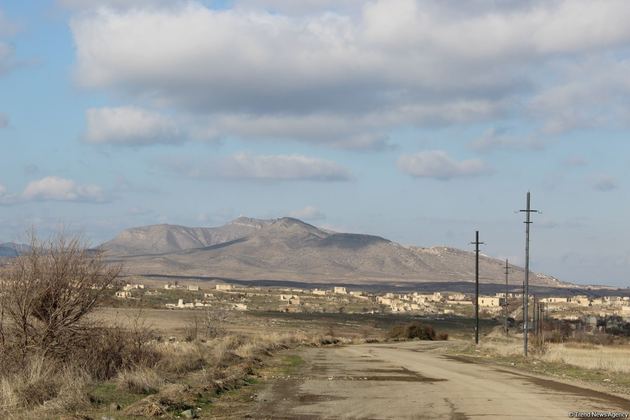The recent military flair up of Nagorno-Karabakh conflict was ended on the 10th November by a Russian-brokered ceasefire agreement after 44 days. The most important question in the years to come appears to be: Quo vadis, Nagorno-Karabakh? Azer Babayev* explores the role the international community can play in ensuring the current fragile peace lasts in the article Nagorno-Karabakh: War is Over, What is to be Done Now? for Global Policy Journal.
Usually, a goal, or a destination is the prerequisite of any movement. In the case of Nagorno-Karabakh, however, the way itself seems to be the goal, and that way is called confidence building. Here, two approaches appear to be keys for a successful peace-building process: defusing the status issue and gradual restoring relations. And they can be influenced or accelerated through supporting initiatives by the international community. Indeed, given the current confrontational positions, they are indispensable.
Defusing the status issue would create conditions that enable the gradual restoration of economic relations and human contacts between Armenia and Azerbaijan. Nevertheless, the process of creating understanding only promises success if the advantages of peace gradually become tangible for both parties.
In the South Caucasus, a first gradualist step would be rebuilding the transportation infrastructure (roads, railways, and air traffic) with international support – similar to the Stability Pact for South Eastern Europe that the EU established after NATO intervention in Yugoslavia in 1999. Experience shows that cross-border retail trade would begin immediately thereafter. This is no panacea, but rather the beginning of a long process.
In addition, establishing diplomatic ties between Turkey and Armenia and opening the border could be highly conducive for the rapprochement of Armenia and Azerbaijan. Turkey closed its border with Armenia in the early 1990s in response to Yerevan’s occupation of surrounding territories outside of Nagorno-Karabakh. Now, these sanctions could be transformed into an incentive for making a timetable to open all regional borders, including the transport routes from Turkey to Armenia and those that pass-through Armenia to Azerbaijan. Indeed, after the end of the recent war, Turkey declared its basic willingness, to open its borders with Armenia.
Ethno-nationalist and revisionist historical narratives must also be rejected, starting with reporting about the other side. Take the case of Trieste: In 1993, more than 40 years after Italy and Yugoslavia were forcibly separated and 20 years after the Osimo Treaty (which settled their final borders), Italy and Slovenia finally set up a historical commission that published a co-authored text on “Italian-Slovenian Relations 1880–1956”. Obviously, such changes in the national psyche take generations, especially after wars. But they must begin as soon as possible.
Another challenge is the return of refugees and IDPs. The largest group is made up of Azeris who fled the seven districts that Armenia occupied in 1992/1993. Although their homes have been ruined under occupation, these refugees intend to return to these recently regained territories. Another group is the Azeris who left Nagorno-Karabakh itself. Although they constitute a smaller group, their return is the most sensitive: The now exclusively Armenian surroundings are not very inviting. This problem is well known in Bosnia and Herzegovina for example, where most places have remained ethnically homogeneous.
Overall, the specific pros and cons of all schemes for settling the conflict must be made tangible: This is where international actors play a decisive role. The case of Northern Ireland serves as an excellent example. Negotiations were not initiated by the conflict parties but rather by London and Dublin, with the involvement of politicians from the USA. A pattern of slow and instructive diplomatic scuttling was developed, and although antagonistic perceptions, binary ways of thinking, and behavioral patterns were not totally eliminated, the antagonists began to open up to compromise. That took a lot of time and an often tortuous path. Every single step towards possible cooperation demanded the careful management of spoilers who resisted each partial concession that they regarded as betraying their holy mission. And the situation around Nagorno-Karabakh looks not much different.
*Azer Babayev is an Assistant Professor of Political Science at ADA University (Baku). Ha has recently been a visiting scholar at the Peace Research Institute Frankfurt (PRIF) and co-edited the book 'The Nagorno-Karabakh Deadlock: Insights from Successful Conflict Settlements' (Springer VS 2020)






